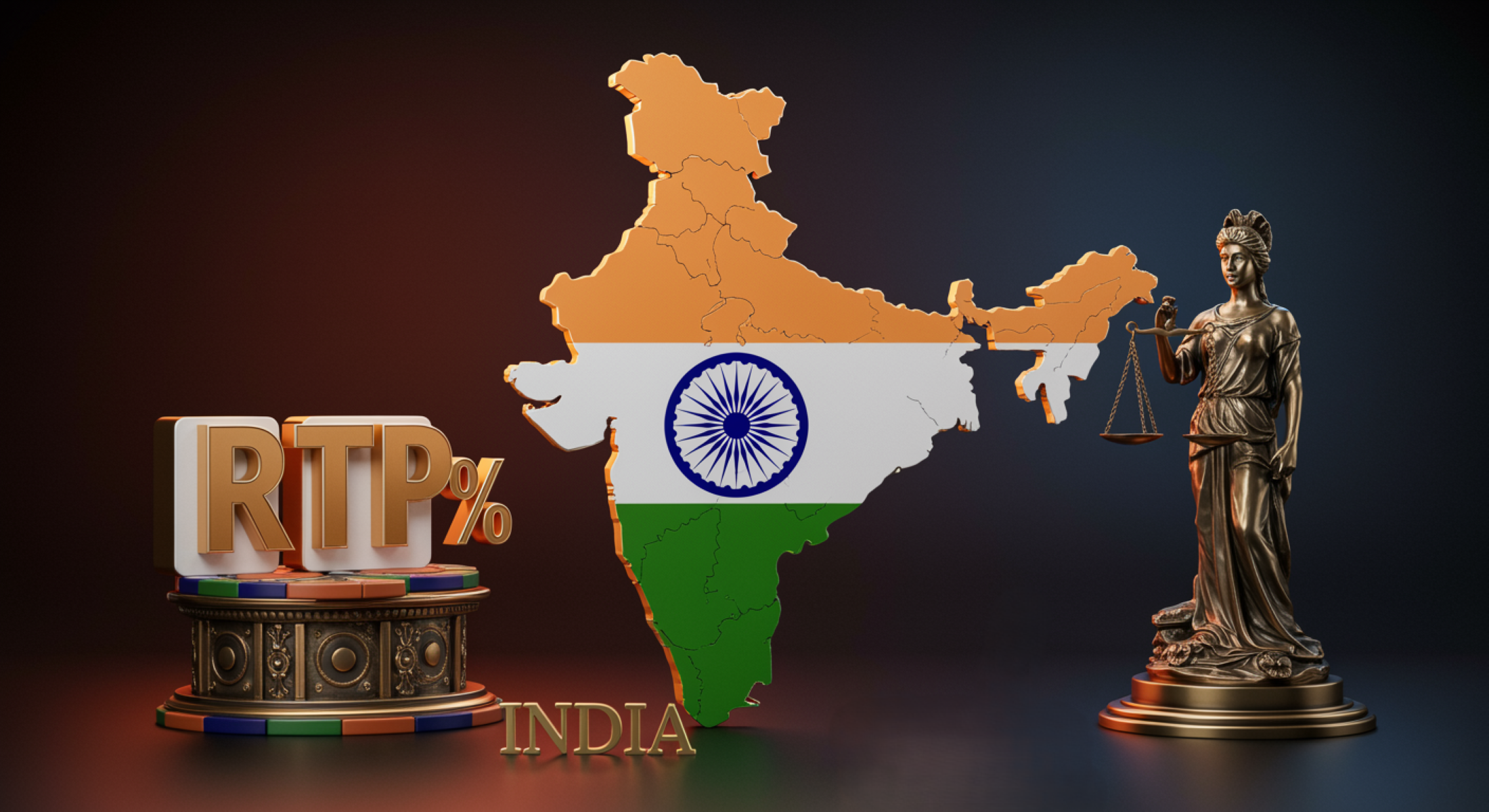How Are Casino Payout Rates Regulated?
Casino gaming in India has grown exponentially in recent years, driven by the rise of online gambling platforms and the increased interest in real-money games. However, one area that often raises questions among players is the regulation of casino payout rates. How do Indian casinos ensure that the payouts are fair? Are there any governing bodies overseeing the process? In this article, we’ll explore how casino payout rates are regulated in India, looking at the legal framework, the role of regulatory bodies, and how players can ensure they are getting a fair deal.
Understanding Casino Payout Rates
Before we get into the legalities and regulations around payout rates in India, it’s essential to have a solid grasp of what casino payout rates actually mean. A casino payout rate, often referred to as the Return to Player (RTP), is a percentage that reflects how much of the total money wagered on a game is expected to be paid back to players over a long period of time. It’s not about immediate results or what you’ll win in a single session—it’s an average outcome based on potentially millions of spins or plays. For example, if a game has an RTP of 96%, it’s programmed to return ₹96 for every ₹100 wagered, but this doesn’t guarantee you’ll see that return every time you play.
These payout rates are determined by complex algorithms and are built directly into the game’s code. Every spin on a slot machine or round of online roulette is governed by a Random Number Generator (RNG), which ensures that each result is completely independent and unpredictable. Over time, the RNG will balance out to reflect the game’s designated RTP. This is crucial to understand because even if you have a losing streak, the RTP isn’t failing—it just hasn’t leveled out yet over enough plays. Casinos rely on these payout structures to ensure their profitability while still offering fair chances to players.
Different games come with different payout structures, which can significantly impact your chances of winning. Slot games generally advertise RTPs between 92% and 98%, with more popular or modern games offering higher rates. Table games like blackjack, baccarat, and roulette often have lower RTPs unless played with optimal strategies. Blackjack, in particular, can offer a payout rate of over 99% when played perfectly, making it a favorite for strategic players. However, most casual gamblers are unaware of how these percentages work and don’t consider RTP when choosing games, which can impact their overall gambling experience.
Understanding payout rates isn’t just a technical detail—it’s a strategic advantage. The RTP tells you how much risk you’re accepting and what your potential return could be. It’s not a crystal ball, but it is a powerful tool that gives you insight into how each game is designed to behave. Knowing the RTP of the games you play can help you manage your bankroll more effectively, set realistic expectations, and ultimately play smarter. Whether you’re spinning the reels on an online slot or trying your luck at a poker table, knowing how payout rates work should be a fundamental part of your gambling knowledge.
Legal Framework for Casino Regulation in India
India’s gambling laws are a bit of a gray area, with some outdated legislation still in effect. Here’s a detailed breakdown of how the legal framework works when it comes to casino regulation and payout rates:
- The Public Gambling Act of 1867: This is the main piece of legislation that governs gambling activities in India. It prohibits the operation of gambling houses and visiting them. However, it does not specifically address modern gambling methods like online gaming or casinos that operate in states where it’s allowed.
- Exceptions to the Public Gambling Act: Despite the blanket prohibition, certain states in India have made exceptions and legalized casino gambling within their territories. The most notable examples are:
- Goa: Goa is the largest hub for physical casinos in India. The state government has established specific regulations for casino operations, including both land-based and offshore casinos.
- Sikkim: Sikkim has legalized both land-based and online gambling, offering licenses to operators. The state also oversees the operations to ensure they meet legal standards.
- Daman: Daman has recently followed suit and legalized casinos, contributing to India’s growing gambling industry.
- State-Level Regulation: While the central government does not have jurisdiction over individual casino payout rates, states with legalized casinos have full control over the regulation of these casinos, including payout rates and game fairness. Each state with legalized casino operations has specific laws to regulate these activities.
- Monitoring and Enforcement: In Goa, for example, the state gaming authorities monitor the casino operations closely to ensure compliance with the rules. These authorities regularly inspect the machines, verify that they function properly, and confirm that the payout rates are set according to the state’s standards.
- Transparency of Payout Rates: The regulations in these states aim to ensure that payout rates in physical casinos are both fair and transparent. Casino operators are required to report their payout percentages, and this is often verified through routine checks.
- Game Fairness: Aside from monitoring payout rates, state authorities also ensure that casino games are fair. For instance, gaming machines must not be tampered with or rigged in any way to alter the odds. The gaming authorities take steps to prevent any manipulation of the machines to guarantee players a fair experience.
- Payout Rate Standards: While each state may have slightly different rules, the general goal is to ensure that payout rates are not only competitive but also reflect a level of fairness. For example, a slot machine in a Goa casino must adhere to a minimum payout percentage, which is determined by the state regulations.
Online Casino Regulation in India
| Aspect | Regulatory Body | Current Legal Status | State-Level Regulations | Challenges & Issues |
| Legal Framework | Central Government, State Governments | Existing laws like the Public Gambling Act (1867) don’t cover online gambling | States like Sikkim have implemented their own laws for online gaming | Lack of uniformity across states, legal ambiguity |
| Information Technology Act (2000) | Ministry of Electronics & IT | Does not specifically address online gambling | Limited enforcement in online casino activities | Online gambling remains in a legal gray zone |
| Licensing of Online Casinos | State Authorities (e.g., Sikkim Gaming Commission) | No national-level licensing, but states can issue licenses | Sikkim offers licenses for online gambling operators | Difficult for players to distinguish legal from illegal operators |
| Payout Rate Regulation | State Regulatory Authorities | Not specifically covered by federal law; state regulations apply | Sikkim ensures that online casinos maintain fair payout rates | Lack of consistent standards, limited audits outside state regulations |
| Fairness & Audits | Independent Auditors, State Regulators | State regulators (like Sikkim) enforce fairness standards and require regular audits | Sikkim requires regular auditing of payout rates | Absence of national auditing bodies for online casinos |
Who Regulates Payout Rates in India?
While the regulation of casino payout rates in India is somewhat fragmented, several key entities play a critical role in overseeing the fairness and transparency of payout rates for both online and physical casinos. Understanding these regulatory bodies is essential for both players and operators who wish to ensure they are adhering to legal and ethical standards.
In states like Goa and Sikkim, where casino gambling is legal, the responsibility for regulating payout rates falls to the state governments and their respective authorities. These state authorities set strict guidelines for how casinos must operate, including ensuring that payout rates are fair and transparent. For example, Goa has its own gaming commission that oversees both physical and online casinos, establishing the rules for Return to Player (RTP) rates, conducting inspections of gaming machines, and performing regular audits to ensure compliance. These state-level authorities ensure that casinos adhere to these standards, which protect the interests of players by promoting fair gaming practices.
For online casinos, many Indian players turn to international platforms that are licensed and regulated by reputable authorities in countries with well-established gambling industries. These international gaming authorities, such as the UK Gambling Commission, the Malta Gaming Authority (MGA), and the Curacao eGaming Authority, play a significant role in ensuring that online casinos maintain fair payout rates. Online casinos licensed by these authorities are required to comply with strict regulations governing their payout rates. Furthermore, they must undergo regular audits by independent testing agencies to confirm that their payout rates are accurate and that the games are not rigged. This ensures a higher level of transparency and fairness, which is crucial for players looking for a secure and reliable gaming environment.
Independent auditing companies also play a vital role in verifying the fairness of payout rates for both online and land-based casinos. Companies such as eCOGRA (eCommerce and Online Gaming Regulation and Assurance) and GLI (Gaming Laboratories International) specialize in auditing the software used in casino games, ensuring that payout rates remain within the expected parameters. These third-party audits are an essential part of the regulatory process, as they ensure that casinos are operating honestly and that their RTP values are accurate. Players can look for certifications from these independent organizations as a guarantee that the games they are playing are fair, offering an extra layer of security and trust in the casino’s operations.
Casino Payout Rates Transparency
Transparency in casino payout rates is crucial for maintaining player trust and ensuring fair play. Here’s a detailed list of the ways in which online casinos in India and physical casinos ensure payout rates are transparent and easily accessible:
- Clear Publication of RTP Rates
- Reputable online casinos in India often make their RTP (Return to Player) rates publicly available.
- RTP percentages are usually displayed on the casino’s website or directly within the game interface.
- Players can easily access this information before engaging with any game, making it easier to understand the expected returns.
- In-Game Display of RTP
- Some casinos go a step further by showing the RTP rate directly within the game.
- This allows players to see the expected payout rate in real time, promoting transparency and trust.
- Detailed Payout Reports
- Many casinos provide detailed reports of their payout percentages.
- These reports may include historical data, showing how payout rates have performed over time.
- Players can track fluctuations and assess the fairness of the games based on these reports.
- Independent Audits and Certifications
- Casinos often undergo independent audits by third-party organizations like eCOGRA and GLI.
- These audits verify that the payout rates align with the reported RTP.
- Certified casinos display these independent certifications, which ensures the games are regularly tested for fairness.
- Use of Random Number Generators (RNG)
- The use of RNG technology is a common practice in both online and land-based casinos.
- RNG ensures that the results of casino games are unpredictable and fair, which directly impacts the payout rates.
- Reputable casinos disclose their use of RNGs and make it clear that they are subject to third-party audits.
- Regulatory Oversight
- Online casinos licensed in reputable jurisdictions, such as the UK or Malta, are required to adhere to strict regulations regarding payout rates.
- These regulators ensure that payout rates are transparent and consistent with what is advertised.
How Are Payout Rates Ensured to Be Fair?
| Method of Ensuring Fairness | Description | Key Regulatory Body | Frequency of Checks | Impact on Fairness |
| Regular Inspections | Physical casinos are regularly inspected by state authorities to ensure that slot machines and other gaming devices are functioning properly and that their payout rates comply with regulations. | State Authorities | Ongoing inspections, often scheduled periodically. | Ensures that payout rates are consistent with the stated norms and are functioning properly. |
| Software Verification for Online Casinos | Online casinos use RNG (Random Number Generators) to ensure fairness. Independent auditors test the RNG systems to ensure they function accurately and produce random outcomes. | Independent Auditors (e.g., eCOGRA, GLI) | Regular independent audits and checks. | Ensures that RNG systems provide truly random outcomes, maintaining fairness for all players. |
| Payout Limits | Payout limits are often set by casinos to prevent players from winning excessively, and to maintain balance within the casino. These limits also help prevent fraud and money laundering. | Casino Management, State Authorities | Payout limits are enforced on a continuous basis, adjusted if needed. | Prevents excessive individual wins and keeps the casino’s operations balanced and secure. |
The Impact of Technology on Payout Rates
Technology has drastically transformed the gambling industry, especially in how payout rates are determined and regulated. One of the most significant technological innovations is the use of blockchain. Blockchain technology provides unparalleled transparency, which has made it increasingly popular in the online gambling world. By utilizing blockchain, casinos can offer verifiable proof that their games are fair, and this extends to payout rates, or Return to Player (RTP) percentages. Players can independently check the fairness of a game’s outcome by accessing its data on the blockchain. This level of transparency wasn’t possible in traditional gambling systems, and it has greatly enhanced trust in the industry.
The application of blockchain technology in online casinos ensures that all transactions and game results are securely recorded in a decentralized ledger. This means that once a game outcome is verified, it cannot be altered or tampered with. The decentralized nature of blockchain reduces the risk of fraud and manipulation, both of which can have a direct impact on the fairness of payout rates. For players, this not only ensures that they are playing in an environment where they can trust the outcomes but also gives them peace of mind that the games are genuinely fair and not rigged.
Additionally, technology has made it easier for casinos to implement sophisticated algorithms that control game outcomes. Random Number Generators (RNGs) are used extensively in both online and physical casinos to ensure that the results of a game are unpredictable and random. RNGs are tested regularly by independent auditors to verify that they function correctly and that the RTP percentages promised by casinos are being met. If an RNG is found to be malfunctioning or biased, the casino may face severe penalties, including the revocation of its gaming license. The combination of RNG technology and blockchain allows for a fairer and more transparent gaming environment.
Lastly, as the gambling industry continues to evolve, innovations like artificial intelligence (AI) and machine learning are beginning to play a role in regulating and improving payout rates. AI can analyze patterns of betting behavior to detect any anomalies, which helps ensure that payout rates are fair and consistent across a wide range of games. The integration of AI in online casinos also allows for faster and more accurate audits, further ensuring that the payout rates are in line with regulations and player expectations. With continuous advancements in technology, the industry will likely see even more improvements in how payout rates are managed, providing players with an increasingly fair and transparent gambling experience.




